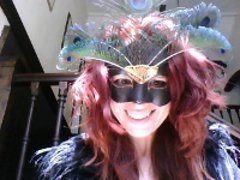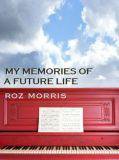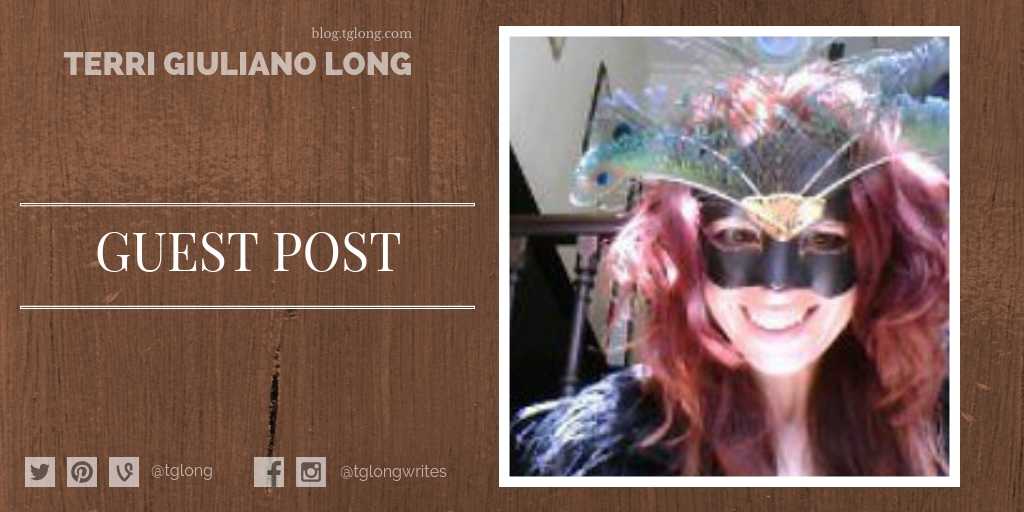Why go Indie
What does indie publishing mean to me? The number 1 reason has to be freedom for authors. Every week, excellent books – particularly by debut writers – are rejected by traditional publishing because they are too daring or out of fashion. But they deserve to be read.
This is nothing new, of course. Vladimir Nabokov floundered in reject land for two years before a French publisher finally took a chance on Lolita. Over the decades there must be countless exciting authors who never got the backing they deserved, and never had a chance to find readers. Now, though, we can.
I have two indie titles. Both of them passed muster with my agent; both were highly praised by editors. But they are too risky for an author launching in today’s market.
My novel, My Memories of a Future Life, was unsuitable because it breaks genre rules. It uses the idea of reincarnation and flips it around – what if you were somebody’s past life? What parts of you would haunt them? Could they give you the answers you need now? But it doesn’t go where you expect and it leaves you with as many questions as answers. It’s literary fiction with a high-concept twist.
My agent loved it; the editors she sent it to praised it highly – but it was too unusual to get approval from their marketing departments. They tried to persuade me to rewrite it as a thriller or a murder mystery to use the idea in a more obvious way. I couldn’t – to do so would rip the heart out of the book.
Besides, I’d already had novels published as a ghost writer. If I was writing as me I would start as I meant to go on – writing my kind of novel, my way. Fortunately, because I went the indie route, I’m finding readers who like it my way too.
My other indie title is a book on writing. I do a lot of book doctoring, and I regularly get asked how to marshal ideas, assess a book’s structure and revise beyond the words. I thought the most helpful thing I could do was write a book about how I tackle writing and revision. The result was Nail Your Novel: Why Writers Abandon Books and How you Can Draft, fix and Finish With Confidence. I got it all into just 40,000 words – and publishers told me it needed to be at least 80,000. Again it was crunch time – should I plump it out to double its length? But I knew that my readers didn’t want to spend precious writing time reading a big book when a small one would do it all. So I published it myself and each month it gathers fans who tell me there is nothing else like it and it’s exactly what they need.
Going indie also means control. I’ve worked in publishing for 20 years and so I have the experience to judge covers, presentation and the way to introduce my book to new readers. (I can even do all the production, because that’s been my job in the ‘real world’ too.) I feel I am the best ambassador for my book – and playing that role is another part of its creative life. I love the contact with readers – although I do sometimes wish I could be cloned 20 times because there isn’t time to do all I’d like.
For this event, I’ve been asked to nominate a favourite indie book. There are thousands out there, and choosing one is like comparing oranges to apples. So I feel my choice should say something significant about the indie movement as a whole. I nominate The Arabian Nightmare by Robert Irwin. It’s not a recent indie title; it’s not now indie at all, in fact. It was published in 1983, when Robert Irwin couldn’t find a publisher to take a risk on it. So he started his own imprint, Dedalus, in days when that was by no means easy. The novel won critical acclaim and was reissued later as a Penguin Modern Classic. Dedalus is now a respected independent publisher. All of this started when an original author wouldn’t take no for an answer.
What does indie publishing mean to me? Being true to my art and finding my readers. Using my professional experience to do the best for my work. Being part of a long tradition of creative pioneers. And feeling immeasurably proud every time a kind stranger says ‘I read your book and I loved it’.
Bio

Her books are Nail Your Novel: Why Writers Abandon Books And How You Can Draft, Fix and Finish With Confidence, available in print and on Kindle. She also has a novel, My Memories of a Future Life available on Kindle (UK and US) and also in print. You can also listen to or download a free audio of the first 4 chapters right here.
Blog ~~ Twitter: @dirtywhitecandy ~~ Twitter: @ByRozMorris
My Memories of a Future Life

What echoes would you leave in their soul?
Could they be the answers you need now?
It’s a question Carol never expected to face. She’s a gifted musician who needs nothing more than her piano and certainly doesn’t believe she’s lived before. But forced by injury to stop playing, she fears her life may be over. Enter her soulmate Andreq: healer, liar, fraud and loyal friend. Is he her future incarnation or a psychological figment? And can his story help her discover how to live now?
A novel in the vein of The Time Traveller’s Wife, Vertigo and The Gargoyle, My Memories of a Future Life is much more than a ‘who was I’ tale. It’s a provocative study of the shadows we don’t know are driving our lives, from our own pasts and from the people with us right now. An examination of what we believe, what we create and how we scare and heal each other.
Above all, it’s the story of how one lost soul searches for where she now belongs.
Excerpt
Excerpt from My Memories of a Future Life
Within the soundproofed walls, the candles knew the truth. This wasn’t nirvana. It was a building in the grimy backlands of Clapham Junction station. In the yoga studio all was hushed, but the candle flames stirred to agitated vibration as a train passed. Delicate instruments, shivering to an influence none of us could hear or feel.
The truth was I shouldn’t be here, lying still on a purple slip of mat in a row of people who looked like they’d all fallen from the sky. Being told by a barefoot girl to empty my mind. To quiet my thoughts. And just be.
Quiet was something I’d had too much of in the past few weeks.
If this were a proper day I’d be at my Yamaha grand piano, sending glorious noise out of its black wing. For hours I would see only the black and white keys. My reflection in the lacquer-black bodywork swaying across the gold lettering. My hands lifting and falling. And today, being the first Monday of the month, I should have been at my tutor’s house.
That was before the pain.
Now, on this first Monday, instead of dancing up a storm of demisemiquavers on his Hamburg Steinway, I was lying on a wooden floor on a sticky mat, trying to be – quiet.
I hadn’t done yoga before. I was trying to like it. I’d heard so many people say they loved it with a passion, but so far I didn’t get it. We’d been here for ages and all we seemed to be doing was lying down. Although the instructor didn’t call it lying down. She called it a posture.
‘Shavasana,’ she intoned as she passed me at a serene pace, toes spreading with each step. ‘It means corpse pose.’
In the mirror I could see the clock. We had been here only ten minutes. How time drags when you’re a corpse. But I’m not good with things that need to be done slowly.
It must be the pianist temperament. Pianos are percussion instruments. They can’t give you long swelling notes like strings or woodwind. You need to keep moving; keep the pulse.
The instructor continued her slow tour. ‘Think of nothing,’ she said. ‘Absolute nothing.’
The rhythm of her feet suggested a tempo, and then the slow movement of Beethoven’s Emperor Concerto. That moment when the orchestra goes quiet and the piano comes in with a languorous, meandering scale –
No, that wasn’t nothing. Try again.
I looked at the white ceiling tiles and tried to be blank like they were. Ah, they weren’t blank. They had a pattern, like they’d been designed to resemble something – what? Wood grain? Crazy paving?
No, that wasn’t nothing.
The candle flames trembled. They knew, even if we didn’t, that another train was passing. With somewhere to go. I studied the orange tongues, tried to pick up the iron beat drumming into the topsoil, the bedrock, the bricks that made this building, the boards of this wooden floor.
For heaven’s sake. Was this all we were going to do?
Giveaway
Roz is very kindly offering a copy of her title My Memories of a Future Life in the giveaway!
a Rafflecopter giveaway
All Indie Week posts
Amy Edelman – founder of IndieReader
Tahlia Newland – author of A Matter of Perception
Naomi Blackburn – co-moderator of Sisterhood of the Traveling Book
Jonathan Gould – author of Doodling
Greg – founder of Ereader News Today
Roz Morris – author of My Memories of a Future Life
Stephen Windwalker – founder of Kindle Nation Daily
Susan Salluce – author of Out of Breath
Pandora Poikilos – founder of Orangeberry Book Tours
Michael Burns – author of The Horn
Terri Giuliano Long’s ‘Ode to Book Bloggers’
Donna – founder of Girl Who Reads
Kathy – founder of I Am A Reader, Not A Writer
Rachel Thompson, author of The Mancode: Exposed
Adam Charles, founding Director of iWriteReadRate.com
Christine Nolfi, author of The Tree of Everlasting Knowledge



I totally agree with you on the freedom a writer experiences by going indie. I also think we have to fight not to be painted by the same brush, which unfortunately is happening today due to the flood of e-books that unfortunately do not meet standards. But we've come a long way and more and as more people enter the field and produce good work, the unfortunate perception that we are all lousy writers will slowly fade away.
I could not agree more, Beatrice. It's already happening. Over the last year, I've seen more and more truly talented, serious, hardworking people enter the field. And we're connecting with readers – at the end of the day, they're the ones who will decide what's good and what isn't, what is read and enjoyed and what languishes. As we say, you can't keep a good indie down!
Thank you so much for visiting!
Beatrice, I do hope so. All we can do is prove we are quality writers with professional standards, and keep reinforcing that message. Self-publishing isn't for those who couldn't get published – it's for those who could!
And Terri, yes I've seen a marked change in the last year. High-profile writers with respected work have been going indie, and that has opened the gates for a lot of us to do so without torpedoing our credibility.
And you're doing a terrific job – with your success you are proving that self-published writers can be trusted. When one of us succeeds, it's good for all of us. Thank you for hosting this event and for letting me have my say!
Your story about self-publishing "My Memories of a Future Life" made me realize that the "gate" in "gatekeepers" swings both ways. Not only do the traditional publishing gatekeepers keep authors from publishing their books, but they keep readers from getting access to what may be their next favorite story.
I don't mean to slam traditional publishers. They generally have sound business reasons for the decisions they make. I'm just saying that there's a cost to all that bean counting: good art is lost in the race for the next bestseller.
Great point, Daniel! Giving us access to a brilliant voice like Roz's is what indie publishing is all about! Thank you so much for stopping by.
Hello Daniel! That is so true – 'the gate swings both ways'. The books that helped form my literary tastes would not be published now if their authors were starting their careers. I thank goodness that there was a time when the market allowed them their chance.
I don't think publishers are necessarily happy about this state of affairs, BTW. Most of the people I know in publishing are avid book lovers and would gladly widen their acceptance criteria. And perhaps indie is now filling that gap for the reading public.
Thanks for a great blog post.
I love the freedom of being an indie author. I write fantasy in a way that suits me but maybe not others. I've vowed to stick to my current approach to the genre regardless of how popular or unpopular I become.
I'd rather be a writer that tried something different and failed as opposed to a writer that played it safe, copied his peers and enjoyed great success.
I love your attitude, David! I feel the same way. If we change our style to suit the whims of others or even to appeal to readers, we risk losing ourselves in the process. Seems a heavy price to pay, especially for a writer.
Hooray for originality, David! It's a brave path, and all the more so if there are few models to follow. But the older we get, the better we get – and the more we learn how to use our craft to express our individuality. Good for you.
[…] the meantime, here’s my rallying cry at Terri’s – and you can also find out why I consider this much-editioned novel is a beacon for the […]
great post, Roz, and I absolutely love your reasons. Self-publishers can be risk takers the way companies with massive overheads can\’t – that\’s the reason I staretd self-publishing and that\’s what makes it so incredibly exciting.If I may add my own reason, I would say what\’s crucial about being indie is that you have the freedom to fail. One thing so little literature does is ask really important questions, make people see things in new ways – you can\’t do that in traditional publishing if it places your book outside the pigeonholes – or if you do, it had better work straightaway. But the very best art comes from trying and failing again and again and more important not worrying about failing because it doesn\’t matter. For that reason I\’d also really urge a lot of indies to stop thinking sales and focus on those questions they have the opportunity to ask that others can\’t. Yes, there are sales successes in indieland but there\’s also the chance to create great art – and that has to be ten times the cause for excitement, surely?I will add to the recommendations Neil Schiller\’s brilliant 7″ fiction and Andy Harrod’s Living Room Stories – both riffs on vinyl records. efictionwise Andrew Meek’s brilliant metaphysical literary novel Quintessence, and following the example of Dedalus, KAtelan Foisy’s devastating Blood and Pudding, first title of her Knickerbocker Circus Press, which has developed into a brilliant urban/beatnik imprint
Interesting debate. Can I just point folks towards the indie ebook review where we are committed to reviewing quality indie ebooks. Roz's book was there the first week we started. It's a committed bunch of professsional writers doing peer review because we recognise that it is important to talk QUALITY in ebooks and that's what we are looking for/reviewing. http://indieebookreview.wordpress.com posts on Tuesdays, Wednesdays and Thursdays each week.
Thank you for visiting, Cally! I appreciate your giving us the link. And thank you for doing this wonderful, important, much-needed work – showcasing excellence and bringing attention to high quality indie books. If or when you have the resources, I hope you will consider also reviewing indies from outside the U.K. :)
Hi Cally! Peer review is definitely the way forward, and I'm guessing we're going to see a lot more of it this year. If 2011 was the year it became respectable to self-publish, 2012 will be the year we organise ourselves with quality control.
"2012 will be the year we organise ourselves with quality control."
Excellent! What a wonderful goal!
I could not agree more, Cally!
Roz, as you were posting this I was writing about branding. We're saying the same thing, I think. Together, we indies must define quality and promote the indie quality brand aggressively. It's time to create a groundswell!
Absolutely, Terri. We need to find ways to prove our worth. I'm very keen to see what you write about branding – keep me in the loop!
Thank YOU, Roz! It's a privilege to have you here!
I believe doors are opening. I also think we're at a crossroad – we've reached or are close to reaching a tipping point. It's time now to get our message to the wider community. In interviews, when I use the term "indie," people say, “Don’t you mean self-publish?â€
Fantastic post, Roz. My sentiments exactly.
Thanks, Joni! Lovely to see you here
[…] are some interesting articles and blog posts about the quality of self-published novels, and possible models of quality control which […]